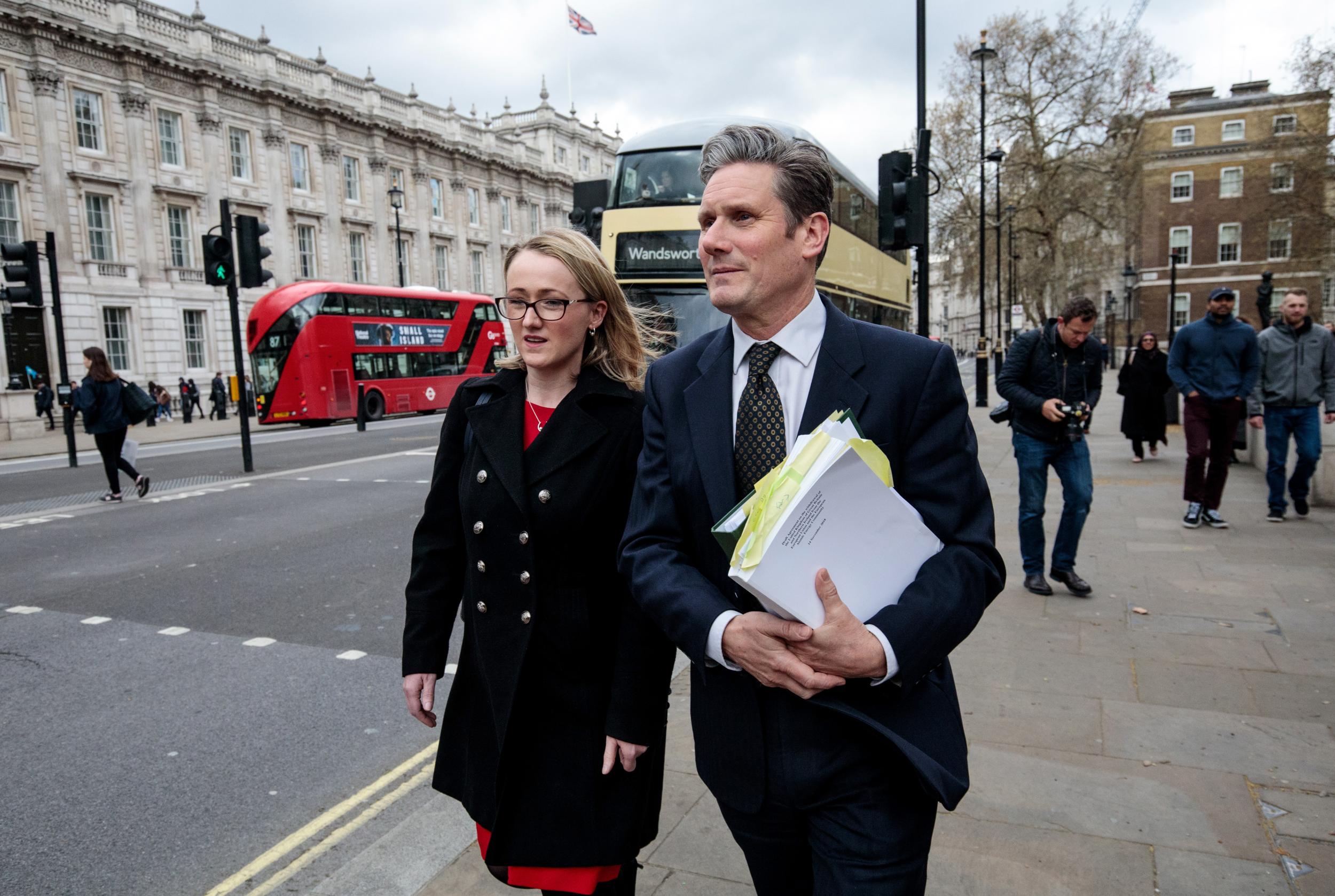It is unsurprising that the cross-party Brexit talks have collapsed
Please send your letters to letters@independent.co.uk

It is unsurprising that the Brexit talks between the Labour and Conservatives have collapsed. As an electorate, we have been asked to choose between bad and worse. Both parties claim have the moral high ground and to be able to usher in a fairer and prosperous society. In practice, no one ever has ever come up with plausible solutions to eradicate poverty, social inequalities and injustices, homelessness, discrimination or how to rebuild clean renewable energy, social care, the NHS, transportation and other public services in the face of grinding austerity.
Dr Munjed Farid Al Qutob
London
Be careful what you wish for – Theresa May will be replaced by a hard Brexiteer
Theresa May was naïve to assume that hard Brexiteers would fear Remain enough, or Remainers would fear a hard Brexit enough, for both to compromise. There never was a possibility of meeting in the middle. There never was a “will of the people” for a soft Brexit. They are three mutually exclusive options Neither hard Brexit nor soft Brexit command a majority of either the electorate or MPs.
Three years after the referendum, despite the issues being clearer, opinion is more polarised. The Brexit Party will do extraordinarily well next week but not enough for them to trust the electorate on a second referendum with an option for a hard Brexit. Changing the prime minister will not give the hard Brexiteers a majority for a hard Brexit. Tory party members cannot give the hard Brexiteers a majority for a hard Brexit. A general election would produce a deadlocked coalition of unlikely bedfellows without a clear majority for anything.
The replacement for Theresa May will be a hard Brexiteer, but they will inherit a situation they cannot change, because May fudged every step. To get a hard Brexit they have to go back to the beginning and start all over again.
What May should be brave enough to do is admit her Brexit is not the Brexit that people want and agree a timetable for departing when the Brexit people want has been defined in another referendum.
Jon Hawksley
Address supplied
Enough is enough – Brexit is destroying our NHS
Brexit has already done great damage to this country. The NHS is suffering, there is a growing major shortage of GP doctors and dentists, hospital specialists and staff. Previously people from the EU helped fill those gaps but now with the chronic uncertainty, many have left.
The decline in the value of the pound and the constantly fluctuating exchange rate has forced many skilled medical staff to return home to continental Europe.
I fear that our NHS will be sold to American healthcare companies after Brexit. These companies already hold many sick and disabled US citizens to ransom. The average cost of health insurance for a family in the USA is $28,000 a year [around £22,000]. Drugs are deliberately more expensive, and medical treatments can plunge families deep into debt for years.
Yet the United States has the highest level of maternal mortality (deaths of expectant women) in the industrialised world, 20-50 per cent of those deaths being regarded as being preventable. US healthcare is rated the most expensive in the world with worst outcomes than almost any other developed country!
The so-called Brexit Party is a limited company, with no actual members, no manifesto and no published policies. Farage and his big pal, Donald Trump, want a Brexit which puts the NHS and British food standards in the hands of US Big Business.
Andrew Milroy
Trowbridge
The EU elections will shape Brexit
The outcome of votes cast across the EU in the forthcoming European parliamentary elections will play a key role in how Brexit is ultimately shaped.
In these elections traditionally dominant centre-right (EPP) and centre-left (S&D) parliamentary groups are forecast to lose significant numbers of seats – and the majority they have held for 40 years. The liberals (ALDE) and Greens should be stronger, and the right-wing, EU-critical populists in Matteo Salvini and Marine Le Pen’s new European Alliance of People and Nations much stronger.
Majorities will be harder to form and less stable; nation-first parties seeking “less Europe” and more power for member states will have a greater influence on policy.
The European parliament has to sign off on the Brexit withdrawal agreement (assuming it is ever passed in Westminster) and this could be problematic if the current stable majority, which has generally backed the European Commission’s Brexit approach, is disrupted by a large contingent of populist, EU-critical MEPs.
The new parliament will also have a considerable say in the makeup of the new commission, which could involve British MEPs, and will eventually negotiate the EU’s future relationship with the UK. Finally, MEPs will have to agree the future relationship itself.
In all of these areas a more divided, polarised and unstable European parliament with potentially conflicting demands could create considerable problems for the UK.
Alex Orr
Edinburgh

Join our commenting forum
Join thought-provoking conversations, follow other Independent readers and see their replies